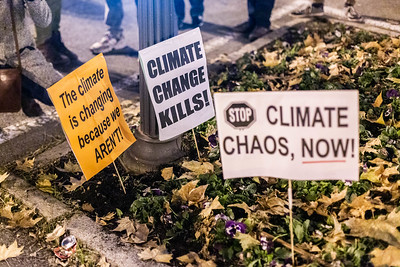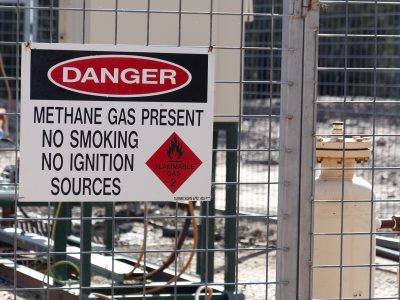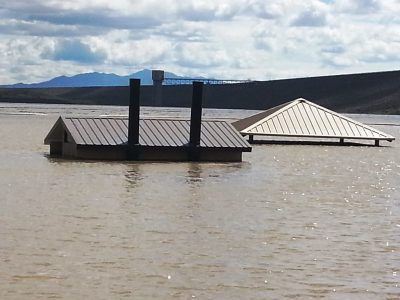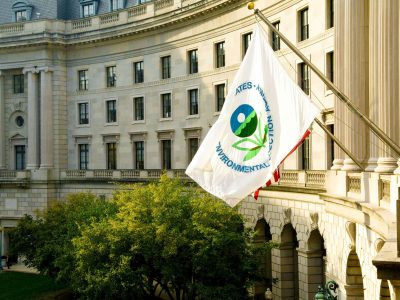General
Disorientation, Rage, Despair – and Hope? The Contradictions of COP25
Personal Notes on the Conference of the Parties in Madrid
As you’ve seen from several recent posts (and more to come), the UCLA Law Emmett Institute has had an observer delegation – as we do every few years – at the 25th annual Conference of the Parties (COP25) to the Framework Convention on Climate Change (FCCC). I’ve been there with faculty colleagues Cara Horowitz and …
Continue reading “Disorientation, Rage, Despair – and Hope? The Contradictions of COP25”
CONTINUE READINGGuest Blogger Tom Callahan: The Fallacy of Climate Choice
Promoting Positive Climate Choices at Every Level of Decision-making
One of the undercurrents of the negotiations at COP 25 in Madrid is the lack of leadership from the United States government after the decision to pull out of the Paris Agreement. While the formal decision-making process here only involves nations that are party to the agreement, there are numerous NGOs, business groups and other …
Continue reading “Guest Blogger Tom Callahan: The Fallacy of Climate Choice”
CONTINUE READINGClimate Change, Ozone Depletion, and the New York Times
The Montreal Protocol offers lessons for climate change, but not a role model
In an extended piece yesterday, The New York Times editorial board wrote that “The World Solved the Ozone Problem. It Can Solve Climate Change. The same tools that fixed the ozone hole — science, innovation and international action — can address.” Although the editorial was mostly correct, it missed what I believe to be the …
Continue reading “Climate Change, Ozone Depletion, and the New York Times”
CONTINUE READINGDeregulating Methane No Matter What
Emmett Institute faculty submit letter opposing Trump’s proposed rollback on methane regulations
Recently, my colleague Sean Hecht and I jointly submitted a comment letter opposing a new EPA Proposed Rule that would roll back standards limiting methane emissions from oil and natural gas production, processing, transmission, and storage facilities. This Proposed Rule essentially revokes two Obama-era regulations, finalized in 2012 and 2016, that first established these methane …
Continue reading “Deregulating Methane No Matter What”
CONTINUE READINGYouth Energy at Madrid COP
Report from the UCLA Law delegation
Along with my UCLA Law colleagues Ted Parson, Alex Wang, and Siyi Shen, I’m in Madrid with three intrepid law students for the annual conference of the major international treaty addressing climate change, the UN Framework Convention on Climate Change. As these conferences go, this iteration was expected to be pretty sleepy. The conference remains …
Continue reading “Youth Energy at Madrid COP”
CONTINUE READINGGreenhouse Gas Regulations Under the Clean Air Act Are Doomed
Will Kavanaugh Use the Major Questions Doctrine or the Non-Delegation Doctrine to Scrap Them?
The Democratic candidates all have bold plans to attack climate change but face an obvious problem: Congress. Unless the Democrats take the Senate and the Presidency while retaining the House, and unless the Democrats abolish the filibuster, it’s hard to imagine Congress passing comprehensive climate legislation (and even then getting legislation through will be a …
Continue reading “Greenhouse Gas Regulations Under the Clean Air Act Are Doomed”
CONTINUE READINGJust in From the Supreme Court
The Court refused to hear two cases, but with noteworthy separate opinions.
The Supreme Court declined to hear two cases today. Neither case was earthshaking, but conservative Justices wrote revealing separate opinions. The case with the greatest import for environmental law was Paul v. U.S. The facts of the case had nothing to do with environmental law, but the issue involved has large implications for environmental statutes. …
Continue reading “Just in From the Supreme Court”
CONTINUE READINGHolmes, Brandeis, and the ‘Great Ponds’ Debate
Some issues are perennial, like property rights v. public rights in water.
I suppose most of you, like me, have never heard of the Watuppa Ponds. But in 1888, a battle broke out over the legality of their use to supply drinking water for a nearby city. The issue closely divided Massachusetts’s highest court, and led to a heated debate in the recently launched Harvard Law Review …
Continue reading “Holmes, Brandeis, and the ‘Great Ponds’ Debate”
CONTINUE READINGClimate Change and the Insurance Sector: An Overview
The Insurance Industry Grapples With Changing Risks in a Changing Climate
(This post is part of a series on the issue of climate change and insurance that my colleague Ted Lamm and I are writing, inspired by a symposium that the law schools co-organized with the California Department of Insurance earlier this year. You can find more information on the symposium here. Ted’s prior related post …
Continue reading “Climate Change and the Insurance Sector: An Overview”
CONTINUE READINGEPA’s Draft Update to Its “Science Transparency Rule” Shows It Can’t Justify the Rule
EPA Cites an Inapplicable “Housekeeping Statute” to Justify Its Rule to Limit the Use of Science In Important Regulatory Decisions
Over a year ago, EPA issued a proposed rule , ostensibly to promote transparency in the use of science to inform regulation. The proposal, which mirrors failed legislation introduced multiple times in the House, has the potential to dramatically restrict EPA’s ability to rely on key scientific studies that underpin public health regulations. The rule, …
CONTINUE READING












